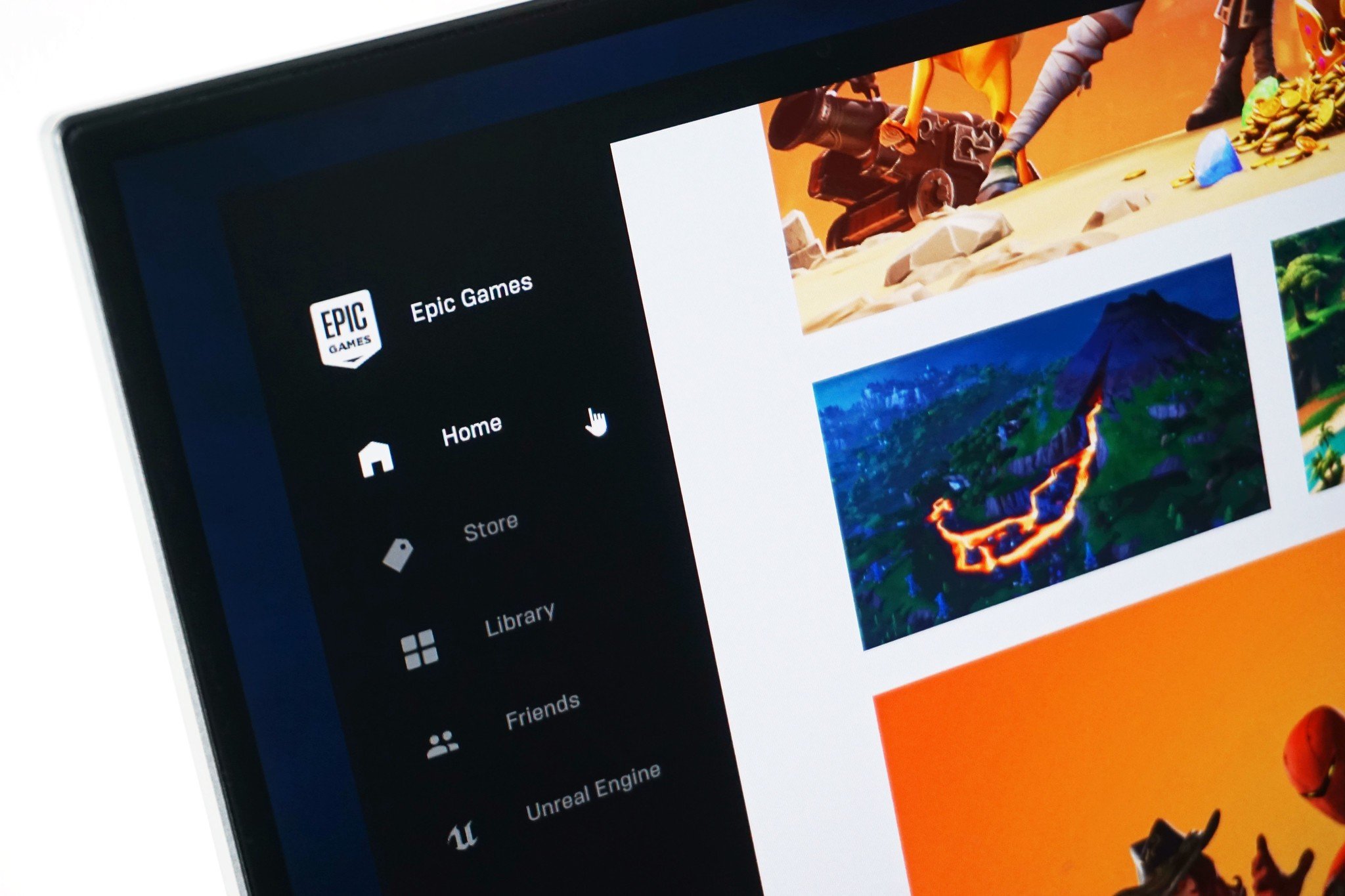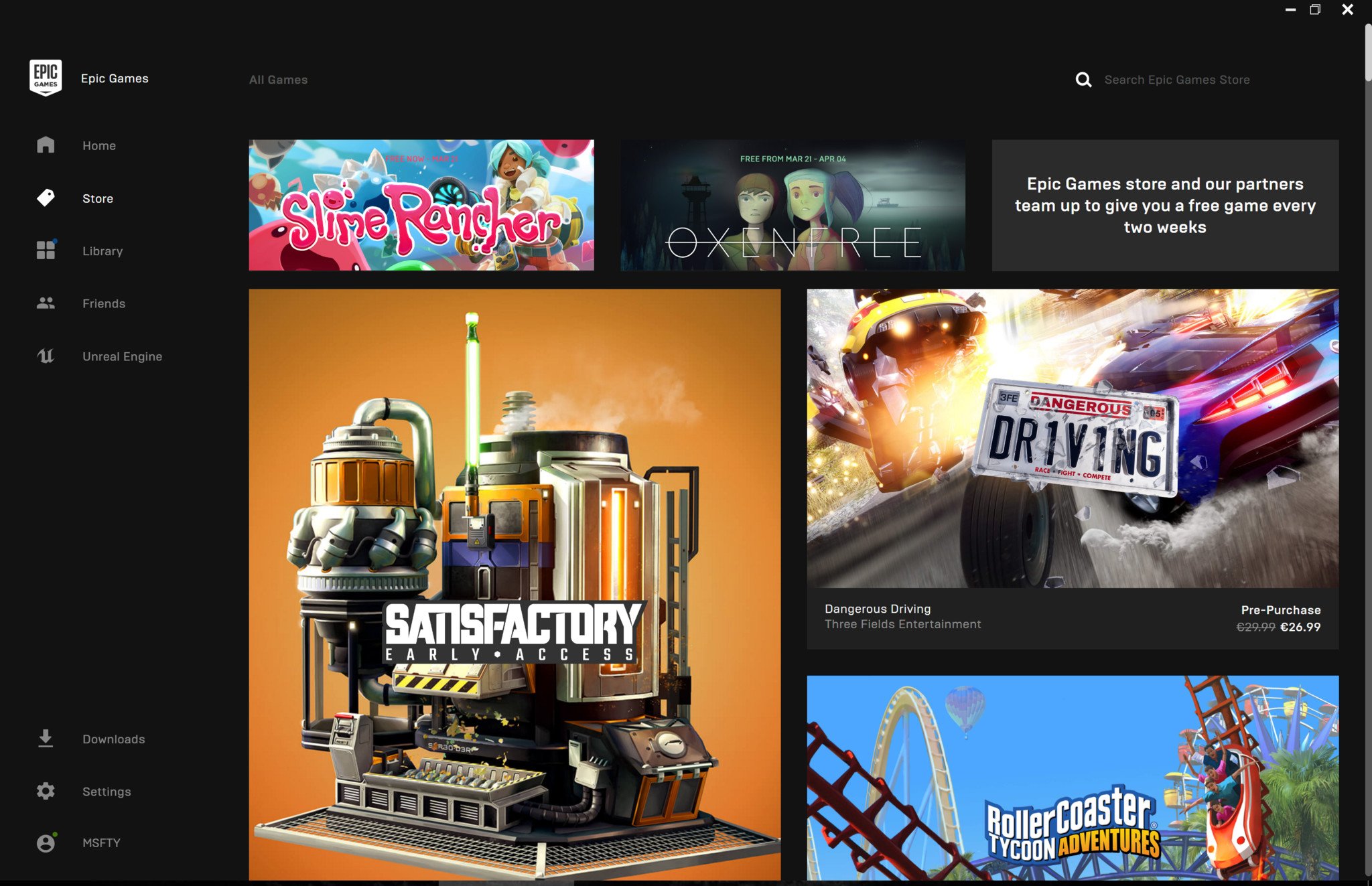Epic Games Store title exclusivity: Are the PR headaches worth it?
The Epic Games Store has been making waves, often for the wrong reasons. Here's how Epic's push into distribution has been creating headaches.

Competition is important. Not only does it drive innovation, it also helps keep consumer costs down, as competitors seek to undercut each other. Or at least, that's how it's supposed to work. In practice, things don't always turn out that way.
Windows is by far the operating system of choice for desktop PC gaming, and Steam has long been the preferred distributor of PC games. Despite its virtual monopoly over all things PC gaming, Steam is famed for its aggressive sales, huge library of content, and large feature set. From social features to developer tools, mods, and VR, Steam is very far out in front of all of its competitors, and none really had the clout to compete in any credible sort of way. Until now.
Epic Games, armed with coffers full of Fortnite cash, burst onto the scene and announced a generous 88 percent revenue cut for developers, beating Steam's own offering. While that won Epic some initial praise, some of its recent actions have soured relations between itself and many core PC gaming communities.
Encouraging devs to break promises

Perhaps the most frustrating part of Epic Games' attempts to dethrone Steam is in its use of exclusivity deals, often with fairly high-profile games that were previously announced for other platforms. 4A Games' popular Metro series has been a staple of Steam for years, and enjoys a strong cult following on PC. After taking pre-orders from Steam for several months, 4A Games' publisher Koch Media revealed that Metro Exodus would be an Epic Games Store exclusive, and that at least for the foreseeable future, it would be unavailable on Steam.
Naturally, fans reacted poorly, leading to some heated comments from some Metro Exodus developers, forcing Koch Media / Deep Silver to release a statement, asking fans to redirect "valid feedback" at them, rather than at developers. This isn't the only statement developers have had to issue to downplay the bait and switch nature of these deals.
Upcoming (rather awesome-looking) factory-building simulator Satisfactory was revealed as an Epic Games Store exclusive, despite garnering a large following on Steam as it moved towards early access. Satisfactory unceremoniously vanished from Steam before jumping onto Epic Games, leading to widespread confusion amongst the game's fanbase. Coffee Stain issued similar statements regarding the way things had been handled, noting that the situation was "frustrating" in the above video.
Another recent high-profile bait and switch comes from Phoenix Point, which is an upcoming XCOM-style tactical game from the original XCOM creator. Phoenix Point was crowdfunded, with promises of a Steam version to backers. For those who paid for the game in good faith, upfront, the broken promise has led to a huge wave of refund requests on crowdfunding platform Fig, and a whole load of discontent on the fledgling game's subreddit. Lead designer Julian Gollop issued this comment in response to some of the criticism.
Get the Windows Central Newsletter
All the latest news, reviews, and guides for Windows and Xbox diehards.
For the inconvenience of pressing button B instead of button A to launch your game, we made a deal that helps us get over the finishing line without my staff wondering whether they will have a job at the end of it. I still think the offer of a year's worth of free DLC, plus a Steam/GoG key at the end of [the 1-year exclusivity period], is a good deal for the inconvenience caused. Unfortunately I can't please everyone, and I regret that we were just not in a position to consult our backers over this move. However, this is where we are, and we will continue to develop the game to the maximum of our ability.
Ultimately, therein lies the bottom line. While larger publishers might have competitive reason for wanting to support Epic Games over Steam (to attempt to force Steam to adopt a more generous developer revenue cut), many of the smaller publishers and developers accepting Epic Games' money is very much a case of literally helping to keep the lights on.
Still an underdog, or is it?

Simply put, Epic Games is asking some of the indies to choose between financial peace of mind or upsetting core fans. When you have bills to pay, it's a pretty easy decision in my view, but it sucks that Epic is forcing developers to make this sort of choice after having already made promises to fans. Microsoft was bombarded with criticism for its timed-exclusivity deal with Rise of the Tomb Raider, leading Redmond to denounce the practice. Since then, any studios it has purchased have committed to honouring their commitments to platforms they have promised games to, including a PS4 version for We Happy Few from Compulsion and Wasteland 3 from inXile. Difference being, Microsoft already has an established presence in the industry, whereas Epic is trying to buy its way in.
I understand your sentiment and the convenience factor of a single store, but Epic is absolutely committed to this path. Exclusives are by the far the most potent tool for our 88% revenue share making inroads against 70% stores.I understand your sentiment and the convenience factor of a single store, but Epic is absolutely committed to this path. Exclusives are by the far the most potent tool for our 88% revenue share making inroads against 70% stores.— Tim Sweeney (@TimSweeneyEpic) March 16, 2019March 16, 2019
With Google poised to deliver its own streaming platform, a resurgent Nintendo on the up and up, with TenCent and likely Amazon waiting in the wings to deliver something similar, the competition for gamer's time and attention has never been more aggressive. Truth be told, Epic Games is a total underdog, with Steam clocking in 47 million daily active users as of January 2019.
A bigger revenue share for developers and creators is an admirable goal, if it is indeed the goal.
It doesn't have a large console platform to leverage like Sony and Microsoft, it doesn't have native control of any operating systems like Windows or Google and TenCent's Android stores, and it doesn't have a bustling social platform, like Discord, YouTube, or Twitch. Epic Games' window of opportunity to get into the space is shrinking fast, particularly when you consider that Apex Legends is eating into Fortnite's dominance as the go-to free-to-play shooter, diminishing Epic Games' wide audience exposure on streaming platforms.
A bigger revenue share for developers and creators is an admirable goal, if it is indeed the goal, and not simply a gimmick that will gradually go away as Epic's store scales in size and complexity. Only time will tell if that aspect is true, and Epic has already made itself questionable in regards to trust, considering it was caught scraping Steam data without your permission. The company claims that your Steam data is only stored locally, though it's still an odd, invasive practice. Epic has also had to field rebuttals to claims that it is somehow compromised owing to megacorp TenCent's investment in the company, whose data is potentially at the mercy of the Chinese regime.
Do most people care?
It's hard to really pin down what Epic Games' true motivations are for getting into distribution, beyond cold hard cash. Being able to control more of the pipeline for developers using its popular Unreal Engine would obviously be lucrative, but like Sweeney himself notes, there really isn't any room for digital storefronts to actually get better at what they do. Epic is on record as saying exclusives are the only way it can force a more competitive rate for developers onto other storefronts, effectively cornering itself into a place where it can't adjust its rates in favour of itself without being accused of hypocrisy.
"[The storefront model is] nearly perfect for consumers already... There is no hope of displacing a dominant storefront solely by adding marginally more store features or a marginally better install experience. These battles will be won on the basis of game supply, consumer prices, and developer revenue sharing."
As admirable as it is for Epic to push for a better revenue split for developers, the aggressive, bullish way the company has pursued its place in an increasingly busy PC games market has not only put developers in a difficult position, it could lead to bigger headaches down the line with PC platform fragmentation. What if DLC for a game you already own on Steam becomes exclusive to Epic Games Store? As we've seen with some Destiny content being exclusive to PlayStation on consoles. Will multiplayer games play nice between Epic Games and Steam? What about PC games on Steam with Xbox Live integration? If Epic Games' store gets really big, will they continue to offer this generous revenue split? Will they restrict cross-play to hurt competitors? And so on.
In spite of all the drama, at GDC, Epic Games noted that Metro Exodus has already beaten previous game Metro Last Light's Steam sales by two and a half times over the same period. Perhaps the simple truth is that the vast majority of gamers don't really care which launcher they use, as long as it performs the basics.
Regardless, I don't think anyone would alienate Epic Games of its right to compete in the Windows PC ecosystem, but the way it has been operating so far isn't exactly encouraging so far. What do you think?

Jez Corden is the Executive Editor at Windows Central, focusing primarily on all things Xbox and gaming. Jez is known for breaking exclusive news and analysis as relates to the Microsoft ecosystem while being powered by tea. Follow on Twitter (X) and Threads, and listen to his XB2 Podcast, all about, you guessed it, Xbox!
